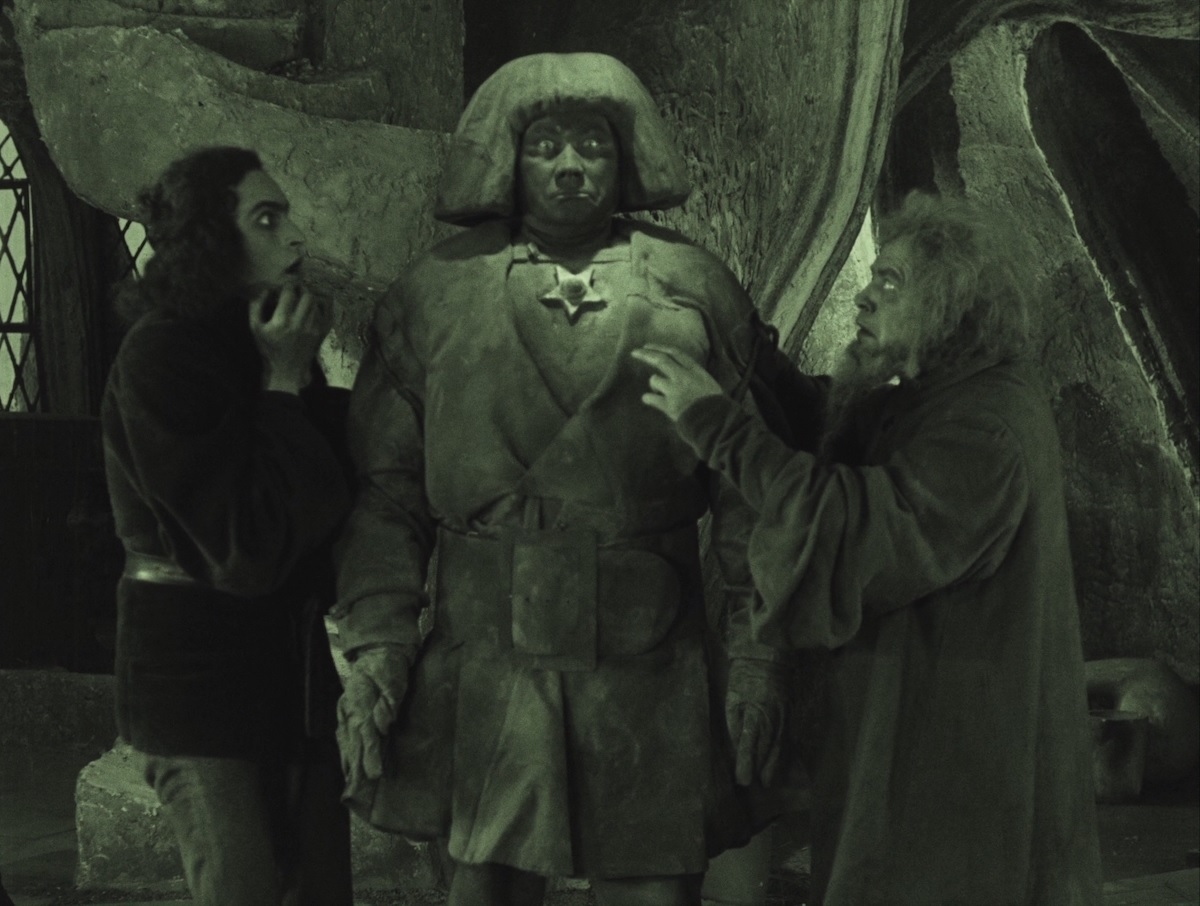The intellectual progeny of the Frankfurt School marches in rhythm to a drumbeat as hollow as Marxist dogma, which not even the drunkard Marx himself would deign to actually believe. It was gruel for the masses, a psychological weapon of demoralisation much like degenerate “art” and videographic prostitution. These theorists, disguised as cultural critics, deliberately target the most foundational and essential pillars that uphold human civilisation: the institution of the family and the concept of the nation. Their analytical framework resembles a complex house of mirrors, a place where every familiar image and value is twisted and distorted until it appears unrecognisable or, at least, unattractive.
These modern-day Molechites view strong fatherhood not as a reliable source of stability and wise guidance, but rather as an oppressive and controlling force that limits freedom. The very concept that a father might provide structure to his children (by teaching them discipline, instilling important values, and fostering resilience through challenge) is immediately labelled as abusive, and somehow against nature. This perspective is less of a thoughtful analysis and more of a complete inversion, where true strength is twisted into brutality and genuine guidance is distorted into tyranny.
The Frankfurt School Marxists do not stop at the family unit; they extend this perverse logic to the nation-state itself. The notion of a strong nation is transmuted into something sinister and evil with a warped pathology, as some bogusly complicated manifestation of repressed desires. In their twisted narrative, anyone who yearns for a robust national identity and loves their country and cultural traditions is branded as a latent degenerate and secretly desirous of revolution, against their father as much as nation. This person’s love is dismissed not as patriotic fervour but a misguided sublimation of underlying “repressed” sexuality and “true nature” somehow outside civilisation and necessitating its collapse. They even damn hard work itself as they ceaselessly strove for an end of civilisation.
The hypocrisy here is blindingly obvious, yet it remains unacknowledged by these critics. They accuse others of repressing desires while advocating for the dissolution of structures that have historically provided meaning and identity to vast numbers of people. This is akin to tearing down a bridge because some people prefer not to cross rivers. The irony is not lost on them however, for these are not free thinkers. They are bound to materialism and lies, as belonging to their evil father.
Tradition is not simply an old and dusty relic left behind by bygone eras; rather, it is the vibrant and living fabric of culture, intricately stitched together with the threads of countless generations’ accumulated experiences, knowledge, and wisdom. Tradition functions as our societal immune system, protecting and preserving the health and continuity of communities over time. The Frankfurt School’s disdain for tradition amounts to a deep contempt for history itself and for the overall well-being of society, representing an attempt to erase the vital collective memory that binds communities together and enables them to endure and thrive. They advocate for severing all ties to the past, reducing humanity to isolated, fragmented individuals stripped of connection, chained down like Prometheus but more diminished and even less than simply mortal. Such a vision is not humanity, but rather slavery.
This anti-tradition stance does not stem from any optimistic or hopeful utopian vision of perfect harmony, an ideal society, or a better future; instead, it arises from a nihilistic void, a profound and complete absence of any meaningful purpose or constructive direction. Their primary objective is not to build, create, or establish something better, more just; rather, it is focused solely on the outright destruction, dismantling, and tearing down of existing social, cultural, and political institutions without providing any clear, coherent, or viable plan for what should follow. Beyond this destructive impulse, there is only the prospect of chaos, disorder, or mere acts of banditry and lawlessness. And is that not precisely what we are facing and contending with here? Are these Frankfurt School theorists not simply the misanthropic intellectual cutting edge of banditry and social decay?
The true purpose behind their aggressive attacks on the concepts of fatherhood and nationalism becomes much clearer: these are not merely abstract theoretical positions or isolated opinions, but tactical moves in a broader war against any form of authority outside of their own tribal imperatives. Their goal is to systematically destroy the West in order to rob it, motivated most by the simple jealous fact that the West has been far too successful in its development and achievements. The idea of strong fatherhood is particularly anathema to them because it symbolises a form of defence and resistance against their criminal and exploitative interests. At its core, what this modern psychological conflict really boils down to is nothing more than blatant banditry. They hate order for the same reason all criminals hate order.
National identity is often perceived as a significant threat because it represents collective values and shared histories that go far beyond mere personal preferences or individual whims. According to these theorists, the nation-state should not be regarded as a genuine community but rather as a coercive and dominating entity that imposes its authority and control over autonomous individuals, who would be better off without any order and in a more primitive state of being. However, this perspective fails to acknowledge a deeper and more profound truth: nations are not simply political or administrative constructs created for convenience; they serve as spiritual homes and provide true belonging where people find meaning, purpose, and connection that extend well beyond the limited confines of their own individual lives.
The Frankfurt School’s Marxism, in its quest to dismantle these structures, seeks to reduce everything to economic determinism and slavery, a simplistic reduction that misses the complexities of human existence and social paradigms. This not done of out ignorance. It is reductionist, again, for the purposes of criminal enterprise. It is further criminal in itself as attempting to undermine the richness and depth of cultural, social, and psychological factors that shape our lives. Dismissing these elements as mere epiphenomena of economic forces strips humanity of all nuance and complexity, which is the point.
The sustained attack on the concept of strong fatherhood reveals a much deeper and more profound philosophical rift: it is essentially a rejection of established hierarchy and traditional authority in favour of a levelling force that aims to abolish all distinctions. Quite plainly, this approach is designed for the sake of easier management and control. Marxism, notably, as Marx himself was related to the Rothschild family and paid by them, is an ideology deliberately handed down to the common people from the very top of the power structure, with the purpose of manipulating them against their own true interests.
How could systematically undermining and destroying all cultural foundations support and empower workers? Every single structure, from family unit to the state, becomes contested. Established traditional hierarchies are deliberately overturned, precisely because these natural and long-standing hierarchies would otherwise hold those in power accountable for their misdeeds and crimes. Once again, this all ultimately boils down to criminal syndicates operating within their respective ethnic cohorts with the goal of empowering themselves. It must be said that they have executed this strategy very effectively and to apparent great material success.
In the flattened landscape of contemporary thought, they impose inflexible set of rigid dogmas that leave little room for deviation or independent interpretation. Their peculiar and often bewildering ideas about repressed desires and hidden or latent conflicts gradually evolve into new orthodoxies, which are then zealously enforced. Far from achieving liberation, the individual is recast and reshaped into a new mould strictly conforming to the Frankfurt School’s doctrine of perpetual conflict and unending critique. In this way, the individual is made servant, a “socialist” man bound by warped ideologies designed in the minds of the criminally insane claimed as geniuses.
The Frankfurt School fixation on Freudian-like repressed desires are lies as designed to obscure actual truths about humanity. The human psyche is complex and multifaceted, shaped by a myriad of influences that are not just economic but also emotional, cultural, and spiritual, as especially impacted by family and nation. To reduce this complexity to a single narrative of “repression” due to any authority, whether good or bad, is not only simplistic but also deeply dismissive of individual agency.
In conclusion, the Frankfurt School Marxists’ critique of strong fatherhood and national identity reveals an underlying philosophical position that is inherently anti-tradition and anti-human. Their reductionist view of society as driven solely by economic forces misses most of what is actually going on, by design. By advocating for the dissolution of structures that provide meaning and stability, they create a void where nihilism, anti-natalism, and various degenerate lifestyles now thrive.
Their hypocrisy in labelling opposition while embodying the very behaviours they condemn is stark evidence of their underlying criminal intent, and more than circumstantial. The strength of fatherhood, the resilience of national identity, and the enduring power of tradition are not repressive forces but pillars upon which civilisations stand. To dismantle them is to invite chaos, and an unending cycle of destruction without construction or creation. The path forward is not in the relentless and meaningless criminal critique of structures to the point of destruction, but in nurturing and reforming them for future generations.
The modern era demands a return to these foundational principles. This is not nostalgia but necessity. In an age where transience is celebrated, and continuity scorned, we must reaffirm our commitment to enduring values. Only then can we build societies that are not just functional but deeply humane, where the individual finds meaning within their natural community. The Frankfurt School Marxists offer a bleak vision of perpetual conflict and endless demoralisation. In contrast, the embrace of tradition, strong fatherhood, and national identity offers a hopeful alternative in the path of strength, and love for one’s roots. This is the challenge of our time: to reclaim the richness of human experience from the ashes of reductionist dogma and forge a future rooted in timeless values, and unassailed by criminal “intellectuals.”

